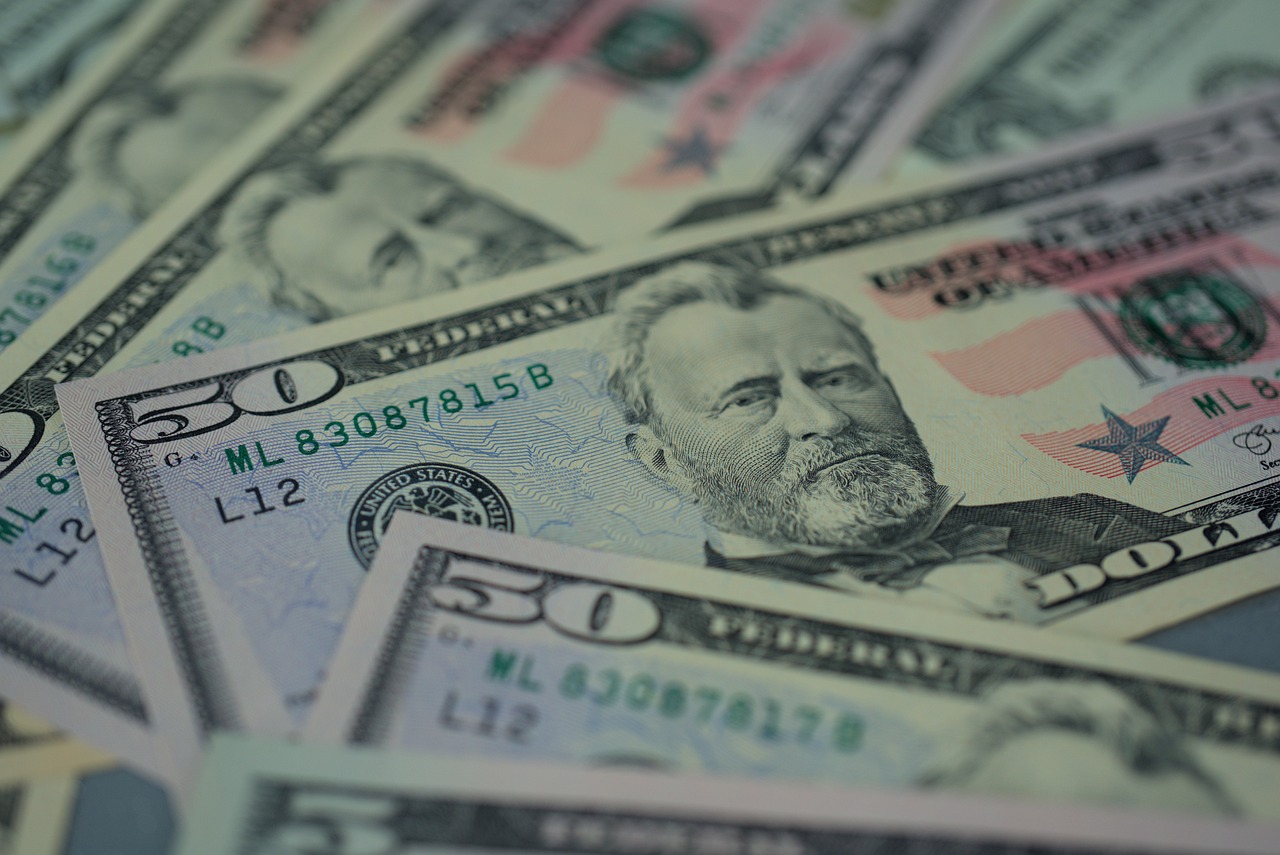Navigating International Payments: Questions and Answers about PayPals Tax Implications, Exchange Rates, and More!
GPT_Global - 2024-04-26 21:30:15.0 552
Are there any tax implications when using PayPal to send money internationally?
When it comes to sending money internationally, many people turn to PayPal as a fast and convenient option. However, there are a few things to keep in mind when it comes to the tax implications of using PayPal for international remittance.
Firstly, any money sent through PayPal is subject to currency conversion fees. These fees can vary depending on the country and currency being used, so it's important to be aware of the current rates before making a transaction.
In addition to currency conversion fees, there may also be taxes on the amount being sent. This again varies by country and can be affected by factors such as the purpose of the transaction and the recipient's location. It's important to do research on the tax laws and regulations in both the sender and receiver's country to avoid any unexpected fees.
Another thing to consider is that PayPal transactions are typically recorded, which means they could potentially be subject to taxation in certain cases. For example, if you are earning income from freelance work or selling goods and services internationally through PayPal, you may need to report this income on your taxes.
In some cases, PayPal may also be required to report certain transactions to the tax authorities. This is to ensure that individuals are not using the platform to evade taxes or engage in illegal activities. It's important to keep track of all your PayPal transactions and consult with a tax professional if you have any concerns about reporting them.
In conclusion, while PayPal can be a convenient way to send money internationally, it's important to be aware of the potential tax implications. Be sure to research and understand the currency conversion fees, taxes, and potential reporting requirements to avoid any surprises when using PayPal for remittance purposes.

Can businesses use PayPal to make international payments to suppliers?
Businesses can indeed use PayPal to make international payments to suppliers, making it a convenient option for remittance transactions. PayPal allows businesses to securely transfer funds to suppliers in different countries, eliminating the need for traditional wire transfers or lengthy cheque processes.
One of the main advantages of using PayPal for international payments is its wide reach. With over 200 markets and 25 currencies supported, businesses can make payments to suppliers all around the world with ease. This makes it ideal for small businesses that may not have the resources or global presence to make international payments through other methods.
In addition to its global reach, PayPal also offers competitive exchange rates for international transactions. This is especially beneficial for businesses looking to save on currency conversion fees, which can add up significantly when making multiple international payments. PayPal's transparent fees and exchange rates make it a cost-effective option for remittance transactions.
Security is another key factor for businesses when it comes to making international payments. PayPal uses advanced encryption technology to protect sensitive financial information, providing businesses with peace of mind when transferring funds to suppliers abroad. Moreover, PayPal offers a dispute resolution process in case of any issues with the payment, ensuring a secure and reliable service for businesses.
Overall, businesses can definitely benefit from using PayPal for their international remittance needs. With its global reach, competitive exchange rates, and secure platform, it is a convenient and cost-effective option for making payments to suppliers around the world. So whether you are a large corporation or a small business, PayPal can be a valuable tool for streamlining your international payment processes.
What happens if the recipient's PayPal account is not verified?
If you are sending money through a remittance service, it is important to ensure that the recipient's PayPal account is verified. This is because an unverified PayPal account can cause delays or even prevent the recipient from receiving the funds.
So, what exactly happens if the recipient's PayPal account is not verified? Well, for starters, the transaction process may be disrupted. When sending money internationally, it goes through several stages of security checks. One of these checks includes verifying the recipient's account to ensure it is legitimate.
If the account is not verified, the remittance service may be flagged or rejected by PayPal's security measures. This could lead to rejection of the transaction or a hold on the funds until the recipient verifies their account. This can be a major inconvenience and may cause delays in the recipient receiving their money.
In some cases, an unverified PayPal account may also have a low transaction limit. This means that the recipient may not be able to receive the full amount that was sent. This could cause confusion and hassle for both parties involved. It is always best to make sure the recipient's account is verified to avoid any issues.
Furthermore, a verified PayPal account not only ensures a smooth transaction process but also adds an extra layer of security for both parties. By verifying the account, the recipient is confirming their identity, making it safer for the sender to transfer funds.
In order to avoid any complications, it is recommended to verify your PayPal account before using it to receive money. Verifications can be done easily by linking a bank account or credit/debit card to the account. Once verified, the recipient will have access to their funds and can use the PayPal account for future transactions without any issues.
In conclusion, having a verified PayPal account is essential when it comes to receiving funds through a remittance service. It ensures a smooth and secure transaction process, avoiding any delays or rejections. It is a quick and easy process that provides peace of mind for both the sender and recipient. So, before sending money through a remittance service, make sure the recipient's PayPal account is verified.
Can you schedule recurring international payments through PayPal?
Running a business often requires making regular payments to international vendors or partners. PayPal, a leading remittance platform, offers a convenient solution for scheduling recurring international payments. This feature can save time and effort for businesses that have to make frequent cross-border transactions.
With PayPal's recurring payment option, you can set up a schedule for automatic transfers to your international recipients. This ensures timely payments without the need to manually initiate each transaction every time. This feature is especially beneficial for businesses that have to make regular payments for services or subscriptions.
Setting up recurring international payments through PayPal is simple and hassle-free. All you need to do is log in to your PayPal account, go to the "Send and Request" tab, and select "Make a Payment." From there, you can choose the recipient, enter the amount and frequency of the payment, and set a start and end date for the recurring payments.
PayPal also offers flexibility in terms of payment frequency. You can schedule recurring payments on a daily, weekly, bi-weekly, monthly, or quarterly basis, depending on your specific business needs. You can also modify or cancel the schedule at any time, giving you full control over your payments.
In addition to convenience, using PayPal for recurring international payments also offers cost savings. PayPal's exchange rates are transparent, and the platform charges lower fees compared to traditional banks or remittance services. This means your business can save money on every recurring payment made through PayPal.
The security and reliability of PayPal's services also make it a preferred choice for businesses. Your payments are protected with advanced fraud prevention measures, and PayPal's buyer protection program covers eligible transactions. Furthermore, PayPal's extensive network connects businesses with recipients in over 200 countries and supports multiple currencies.
In conclusion, PayPal offers a convenient and cost-effective solution for scheduling recurring international payments. With its user-friendly interface, flexibility, and safety measures, businesses can save time and resources while ensuring timely and secure payments to their global partners. Consider using PayPal for your business's remittance needs and experience the benefits firsthand.
Are there any exchange rate markups when using PayPal for international transfers?
When it comes to sending money internationally, there are many options available. One popular method is using PayPal for remittance services. However, many people wonder if there are any hidden fees or exchange rate markups when using PayPal for these types of transfers. The answer is yes, there can be some markups involved.
Firstly, let's discuss what a markup is. In simple terms, it is an additional cost added on top of the base rate for a service. In the case of PayPal, they typically charge a percentage of the total transaction amount as their fee, which can vary depending on the countries involved and the exchange rate at that particular time. This means that the transfer may end up costing you more than the actual amount you intended to send.
Another factor to consider is the exchange rate used by PayPal. They have their own exchange rate calculator which they use for international transfers. While this rate may be close to the official exchange rate, it is not always the exact same. In some cases, it can be slightly higher, resulting in a small markup on top of the already charged fees. This can add up, especially for larger transactions.
However, it is worth noting that PayPal does disclose their fees and exchange rates before completing the transfer. This allows you to see the exact amount you will be charged before confirming the transaction. It is important to carefully review these fees and rates before proceeding with the transfer. You may also want to compare them to other remittance services to see if there are better options available for your specific transaction.
In conclusion, there may be some exchange rate markups when using PayPal for international transfers. It is best to carefully review the fees and rates beforehand to ensure you are getting the best deal for your remittance needs.
Can you send money internationally through PayPal using a credit card?
Sending money internationally has never been easier than with PayPal. This popular remittance service allows you to transfer funds to over 200 countries and regions worldwide, all from the comfort of your own home. And the best part? You can even use a credit card to make your payments. First things first, make sure your PayPal account is linked to your credit card. This can easily be done by logging into your account, going to the "Wallet" tab, and selecting "Link a Card". Once your credit card is linked, you can start sending money internationally in just a few clicks. Simply choose the "Send & Request" option on your PayPal dashboard and then select "Send to Friends and Family" or "Pay for Goods and Services". From there, enter the recipient's email address or phone number, the amount you wish to send, and choose your credit card as the payment method. PayPal will handle the currency conversion for you, so you don't have to worry about it. Once you complete the transaction, your recipient will receive the funds in their local currency or in USD, depending on their preference. The best part is that they don't need a PayPal account to receive the money, making it convenient for both parties. Whether you're sending money to family abroad, paying for international purchases, or supporting a cause in another country, PayPal makes it easy and secure. And with the option to use a credit card, you can earn rewards while sending money internationally. In conclusion, PayPal offers a seamless and efficient way to send money internationally using a credit card. With its affordable fees, fast processing times, and wide reach, it's no wonder why it's a top choice for individuals and businesses alike. So next time you need to send money abroad, give PayPal a try and experience the convenience for yourself.Do both parties need to have a PayPal account to send and receive international payments?
PayPal is a popular online payment platform that allows individuals and businesses to send and receive money internationally. With its easy-to-use interface and widespread acceptance, it has become a go-to option for many people looking to transfer funds overseas. However, a common question that arises is whether both parties involved in the transaction need to have a PayPal account. Let's explore this topic further.
Firstly, to send an international payment through PayPal, you will need to have a PayPal account. This account can be linked to your bank account or credit/debit card, which you can then use to fund your transactions. This means that if you want to send money to someone in another country, you must have a PayPal account to initiate the transfer.
On the other hand, the recipient of the international payment does not necessarily need to have a PayPal account. If they do not have an account, they can still receive the money as a guest user, and then create a PayPal account to access the funds. This makes PayPal a convenient option for those who may not be regular users of the platform.
However, if the recipient already has a PayPal account, the process becomes even smoother. The money is transferred instantly and directly into their PayPal balance, without the need for them to take any additional steps. They can then withdraw the funds to their bank account or use them for online purchases.
In summary, while it is necessary for the sender to have a PayPal account, the recipient can choose to either create an account or receive the funds as a guest user. This provides flexibility and convenience for both parties involved in the international remittance process.
With its wide reach and user-friendly features, PayPal continues to be a reliable option for sending and receiving money across borders. So, if you're looking to make international payments, having a PayPal account can make the process smoother and hassle-free. Sign up for a PayPal account today and discover the convenience it offers for your remittance needs.
About Panda Remit
Panda Remit is committed to providing global users with more convenient, safe, reliable, and affordable online cross-border remittance services。
International remittance services from more than 30 countries/regions around the world are now available: including Japan, Hong Kong, Europe, the United States, Australia, and other markets, and are recognized and trusted by millions of users around the world.
Visit Panda Remit Official Website or Download PandaRemit App, to learn more about remittance info.



